Short Bytes: The year 2017 is about to arrive. Just in case you’re looking for some powerful text editor for Linux to kickstart programming new year, you’re at the right place. While the debate of the best programming editors for Linux won’t end anytime soon, there are many editors that bring an impressive set of features. While Vim, Emacs, and Nano are older and dependable players in the game, Atom, Brackets, and Sublime Text are relatively newer text editors.
Best Text Editors For Linux | 2017 Edition
Without further delay, let’s start our list of the most impressive, feature-rich, and useful source code editors:
9. Geany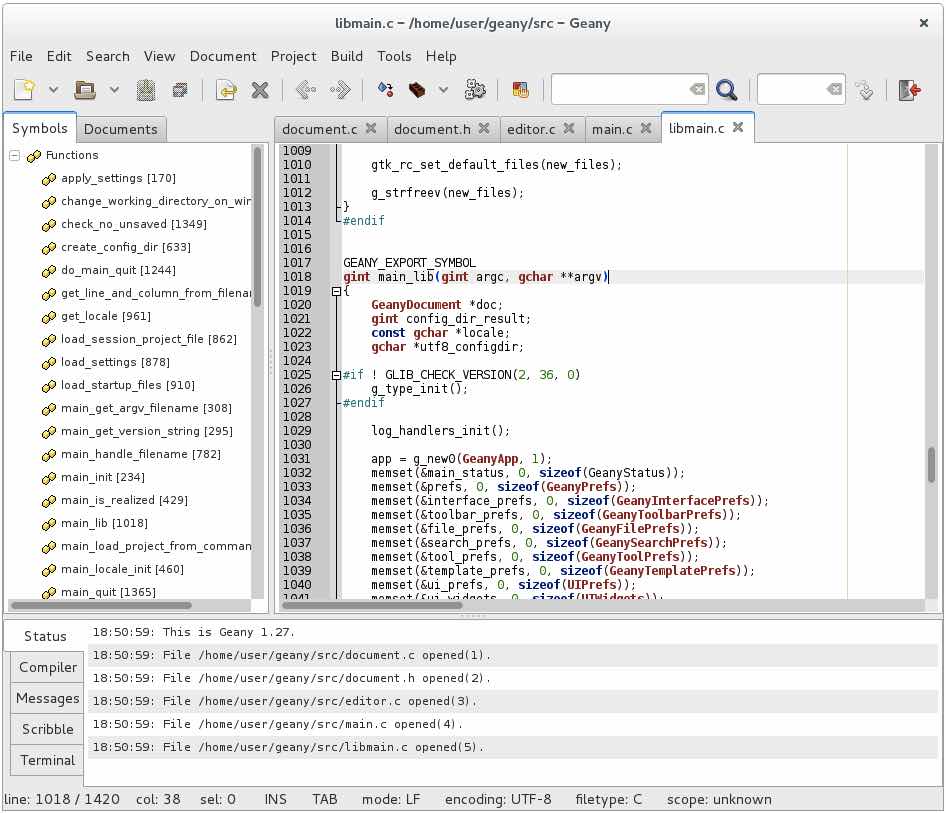
Geany is a great text editor that integrates the GTK+ toolkit to deliver an excellent development environment. If you’re looking for a text editor that feels more like an IDE, Geany could be a great choice. This lightweight IDE supports all the main programming languages and has only a few dependencies from other packages. The notable features of Geany are pluggable interface, syntax highlighting, line numbering, etc. It comes with a clean interface and plenty of customizable options. It’s written in C and C++.
The latest version of Geany that’s available for download is Geany 1.29. Find more details and download link here.
8. Brackets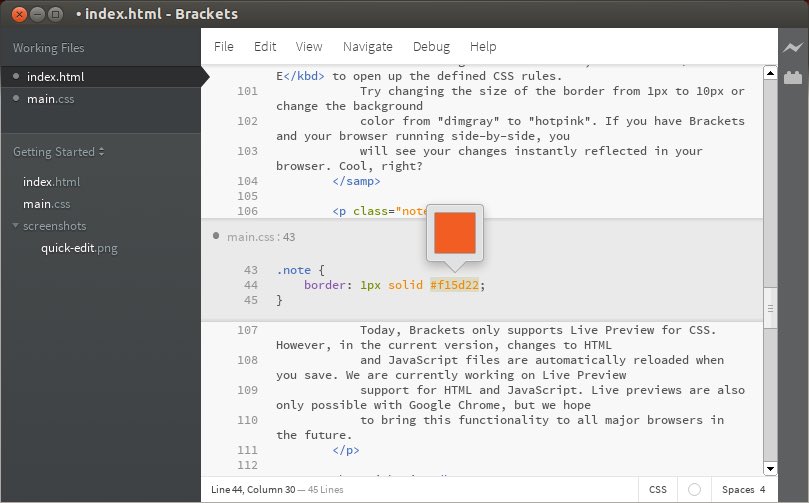
Brackets is a popular text editor that was launched by Adobe back in 2014. This free text editor comes with Live Preview, Inline Editing, focused visual tools Preprocessor support, and other exciting features. Created from the ground up, it’s developed for web designers and front-end developers. Despite being lightweight, this open source text editor comes loaded with all qualities of a modern text editor. It’s written in HTML, CSS, and JavaScript.
The latest release of this great text editor is Brackets 1.8, which comes loaded with Node 6.3.1. Find the download link and further details here.
7. KWrite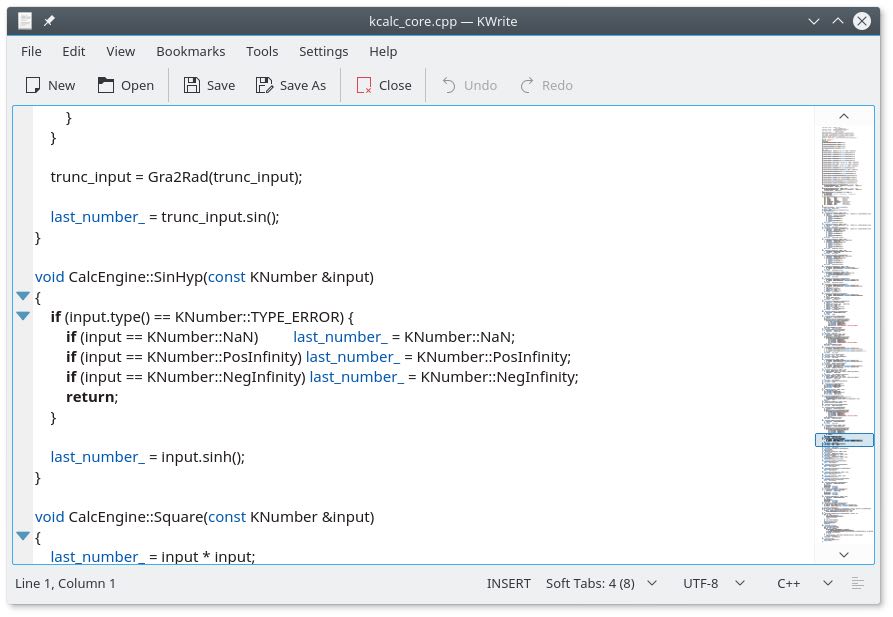
KWrite, whose first public release was in 2000, is a lightweight text editor developed by KDE. It’s based on the KATE text editor and the KDE KParts technology. The major features of this popular text editor include word completion, auto-indentation, syntax, highlighting according to file type, Vi input mode, and support for plugins. Other exciting features of KWrite are extensibility, encoding support, remote file editing, etc. It’s written in C++.
Find more information about this simple to use and highly pluggable text editor here.
6. nano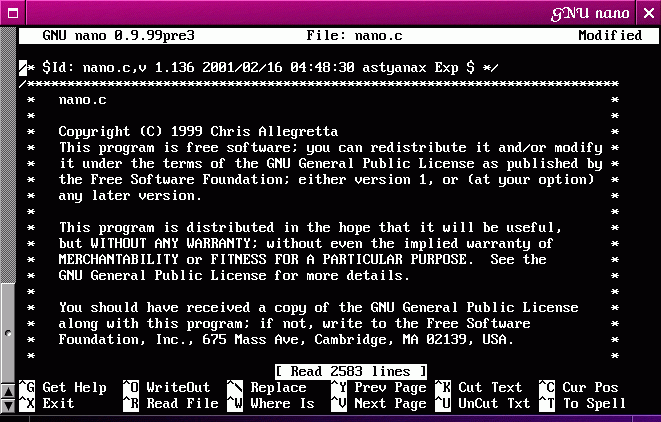
nano is a user-friendly text editor that’s widely used on Unix-like operating systems. nano, first released in June, 2000, emulates the Pico text editor and comes loaded with additional functionality. It runs in a familiar command line interface. If you’re habitual of spending days and nights playing with configuration files in Terminal, nano will fulfill your needs. Its major highlights include autoconf support, case sensitive search function, auto indentation, interactive search and replacement, tab completion, soft text wrapping, etc. It’s written in C programming language.
The latest release of this text editor is GNU nano 2.7.2. For more information, feel free to visit nano’s website.
5. GNU Emacs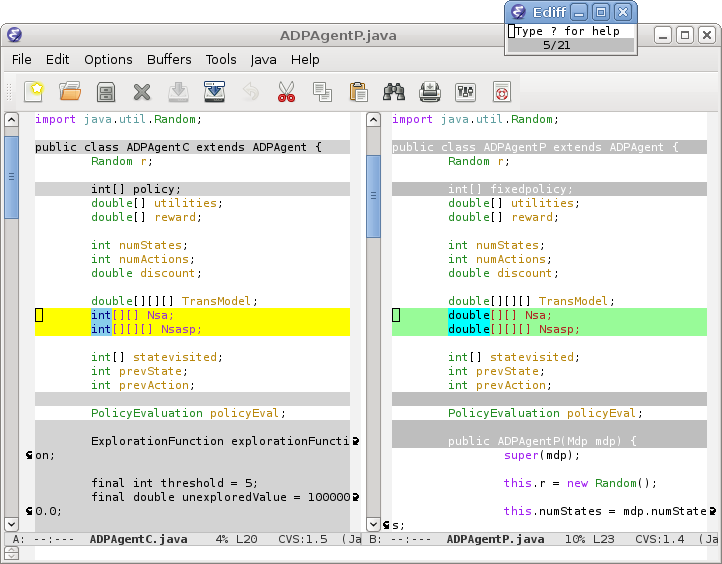
There’s a good chance that Emacs would be one of your favorite Linux text editors. It has been around for a long time. GNU Emacs, created by GNU Project founder Richard Stallman, is its most popular version that’s used by developers and Linux enthusiasts all across the world. Written in Lisp and C programming language, this free software is extensible using a Turing complete programming language. The users of GNU Emacs also enjoy extensive documentation and tutorial support. There’s also an availability of extensions like debugger interface, mail and news.
The latest release of this free/libre text editor is GNU Emacs 25.1. For more information, you can visit this link.
4. Gedit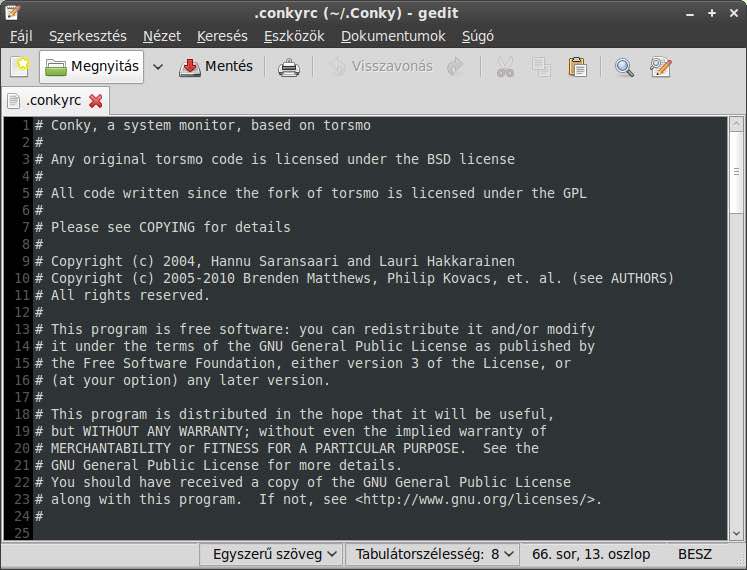
Gedit comes loaded as the default text editor of the GNOME desktop environment. This general purpose text editor aims at simplicity and ease of use. Following the GNOME project philosophy, Gedit comes with a clean and straightforward GUI. Written in C programming language, Gedit witnessed its first public release in 2000. This open source and free software features full support for internationalized text. In Gedit, you get configurable syntax highlighting for various programming languages like C++, C, HTML, Java, XML, Python, Perl, and others.
The latest version of Gedit arrives with GNOME 3.22. You can find the download links and further information about Gedit here.
3. Vim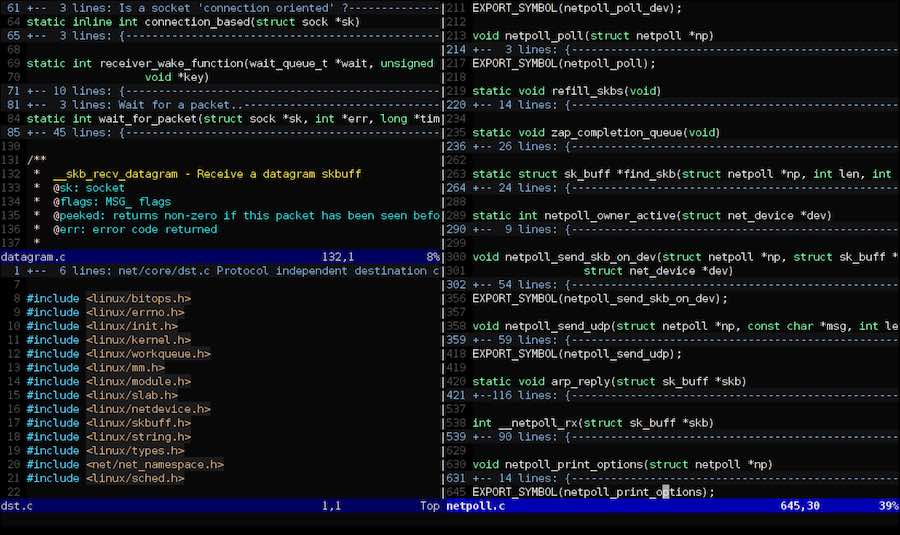
Vim, or Vi IMproved, is an advanced text editor that aims to deliver a more powerful performance and extend the capabilities of de-factor Unix editor ‘Vi.’ It’s a highly configurable text editor that’s built to serve the needs of a developer. That’s why it’s often called a ‘programmer’s editor.’ It’s designed to be used both as a command line interface and as a standalone application in a GUI. While the beginners complain that it’s tough to use, they also learn that it’s one of the most powerful text editors around. Its main highlights are automatic commands, digraph input, split screen, session screen, tab expansion, syntax coloring, and tag system. Vim is written in C and Vim script.
Vim 8.0 is the latest stable version of this popular text editor for Linux. You can find more information and the download on Vim’s website.
2. Atom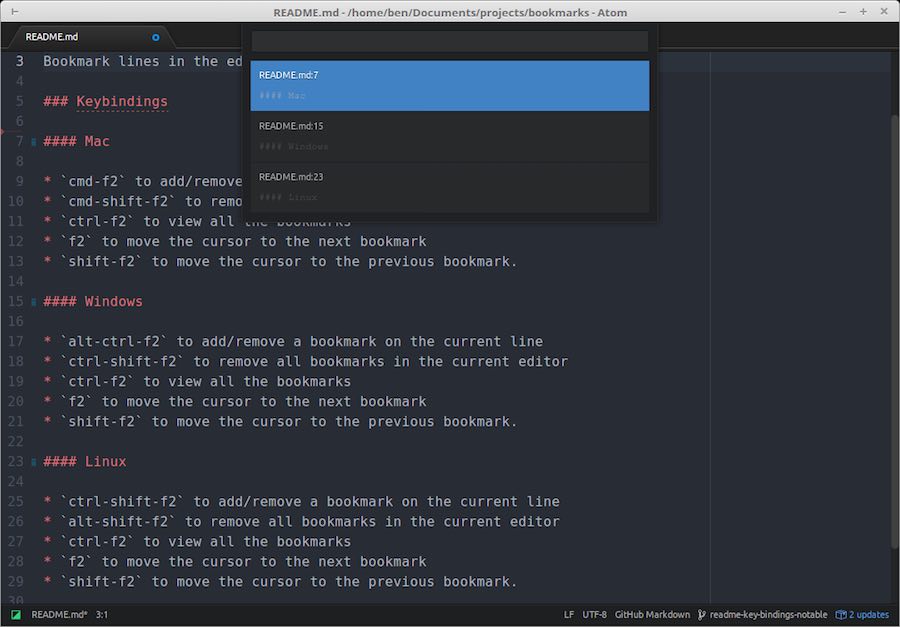
Atom is a free and open source text editor that’s developed by GitHub. Based on Electron (CoffeeScript, JS, Less, HTML), it’s a desktop application that’s built using web technologies. Often being called the text editor of 21st century, it’s a modern text editor that’s hackable to the core. The major features of Atom are cross-platform editing, built-in package manager, file system browser, multiple pane support, find and replace function, and smart autocompletion. You can select from 1000s of open source packages and add new features to Atom. It’s also customizable to suit your needs and style.
The latest release of Atom is version 1.12. You can find the download links and more information on Atom here.
1. Sublime Text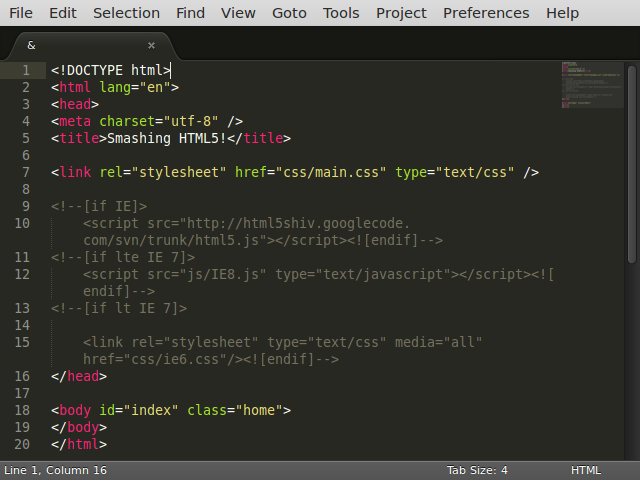
In our own poll at Fossbytes Facebook page, Sublime Text, followed by Atom and Vim, turned out to be the favorite. This feature-packed text editor is built for “code, markup and prose.” It natively supports tons of programming language and markup languages. Using plugins, that are maintained under free-software licenses, one can extend its functionality. “Goto Anything” is a popular feature of Sublime Text that lets you quickly navigate to files, lines, or symbols. The other main features of Sublime Text are command palette, Python-based plugin API, simultaneous editing, project-specific preferences, etc.
The interested users can find download links and further details about Sublime text on its website.
Did you find this list of the best text editors For Linux and programming helpful? Don’t forget to tell us your choices and feedback.
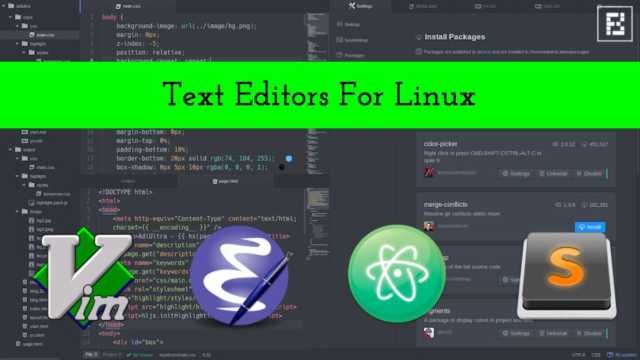
Comments
Post a Comment